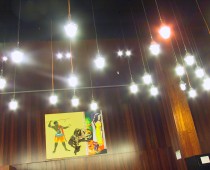This post has been living in my drafts. Felt it was incomplete, and still do, but I don't think I can get it over the line. Perhaps someone else has something to add. Cheers – Amol
//
Many people fear robots takings all the jobs as they get good at doing service and manufacturing work of all types.
But it has happened in information products. The future is already here as William Gibson said (http://mobile.nytimes.com/2012/01/15/books/review/distrust-that-particular-flavor-by-william-gibson-book-review.html).
There is infinite information: blog posts, data feeds, alerts. There are even offshore article farms that write all the link bait stories. There are EVEN robot firms that produce these link bait stories from spreadsheets.
Wow.
So what is happening in journalism — aka "media" the actual business?
(My thought is whatever is happening is a clue about what will happen in Management or Administration or Automotive or even the biggest job in America: driving.)
1. Opinions are getting more valuable. Fox News was built on the correct observation that mere information reporting was no longer valuable. Huffpo and Buzzfeed are arguably pure style and opinion, not fresh information.
2. Entertainment seems very valuable. The golden age of video storytelling, say people in the media business. Tons of TV and streaming hours to fill, so lots of stories getting told.
3. It's better to be a star than ever before. It may be easier to become famous but you cannot say it's harder these days when you are famous. Celebrity scales very well in the age of cheap communications. This is true for famous journalists and famous stories, which seem to attract lots/too much global attention.
4. Live events are doing great. In music the revenue has shifted appreciably there, and journalists have a similar shift in revenue mix to conferences. The experience of being there and the people you meet (not just what the stars/experts perform). Perhaps this is something that is hard to do online still (social networking?) or perhaps the human interface / live experience includes stimulation that goes beyond "information" (though surely the experiences are information too).
5. Curation.
